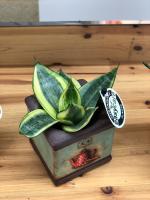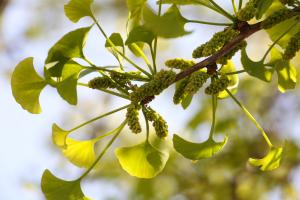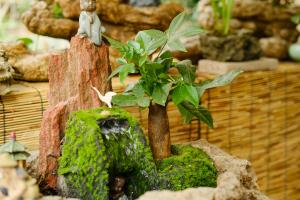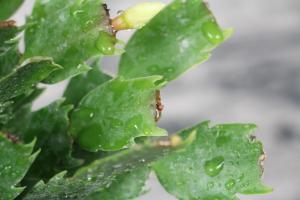What Vegetables Not to Plant Near a Black Walnut Tree
Black walnut trees are prized for their beautiful wood and delicious nuts. However, they also produce a chemical called juglone that can be toxic to some plants. If you’re planning a vegetable garden near a black walnut tree, it’s important to know which plants can tolerate the presence of juglone and which can’t. Here are some vegetables you should avoid planting near a black walnut tree:
Tomatoes
Tomatoes are highly susceptible to juglone toxicity and should never be planted near a black walnut tree. The chemical can cause stunted growth, wilting, and even death in tomato plants. If you want to grow tomatoes in your garden, it’s best to plant them at least 50 feet away from the trunk of the black walnut tree.
Peppers
Peppers are another vegetable that should be avoided near a black walnut tree. While they may not be as sensitive to juglone as tomatoes, they can still be harmed by the chemical. If you want to grow peppers, it’s best to plant them at least 30 feet away from the trunk of the black walnut tree.
Potatoes
Like tomatoes, potatoes are highly susceptible to juglone toxicity and should never be planted near a black walnut tree. The chemical can cause reduced yields, misshapen potatoes, and even death in potato plants. If you want to grow potatoes in your garden, it’s best to plant them at least 50 feet away from the trunk of the black walnut tree.
Beans
Beans are also sensitive to juglone and should not be grown near a black walnut tree. The chemical can cause stunted growth, yellowing leaves, and poor yields in bean plants. If you want to grow beans in your garden, it’s best to plant them at least 50 feet away from the trunk of the black walnut tree.
Other Plants to Avoid
In addition to the vegetables listed above, there are several other plants that should be avoided near a black walnut tree, including:
Asparagus
Blueberries
Azaleas
Rhododendrons
Lilacs
Hydrangeas
Forsythia
In general, it’s best to plant juglone-tolerant plants near black walnut trees. Some plants that are known to be tolerant of juglone include:
Squash and pumpkin
Cabbage and other brassicas
Carrots
Lettuce and other leafy greens
Radish
Beans
Conclusion
If you’re planning a vegetable garden near a black walnut tree, it’s important to know which plants can tolerate the presence of juglone and which can’t. Avoid planting tomatoes, peppers, potatoes, beans, asparagus, blueberries, azaleas, rhododendrons, lilacs, hydrangeas, and forsythia near a black walnut tree. Instead, opt for juglone-tolerant plants like squash, pumpkin, cabbage, carrots, lettuce, and radish. By planting the right plants in the right location, you can ensure a healthy and productive vegetable garden even in the presence of a black walnut tree.

 how many times do yo...
how many times do yo... how many planted tre...
how many planted tre... how many pine trees ...
how many pine trees ... how many pecan trees...
how many pecan trees... how many plants comp...
how many plants comp... how many plants can ...
how many plants can ... how many plants and ...
how many plants and ... how many pepper plan...
how many pepper plan...
































